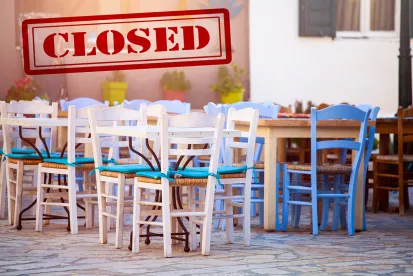The federal government and states across the nation have taken unprecedented action to prevent the spread of COVID-19. On March 21, 2020 Michigan Governor Gretchen Whitmer issued Executive Order 2020-20, which closed a number of restaurants, theaters, performance venues, gymnasiums and other places of public accommodation. On March 23, Gov. Whitmer issued Executive Order 2020-21, which ordered individuals to stay in their residences (subject to several exceptions).
These and other similar governmental actions are clearly disruptive to commerce and contractual relations. Could these actions create important rights for a business or individual who cannot fulfill a contract without violating one or more of these orders? It depends.
If a contract does not have applicable force majeure terms or another governing clause specifically allocating rights in this situation, the parties have to consider whether further performance under the contract could be excused due to a supervening impossibility. Under Michigan law, in this analysis "[t]he important question is whether an unanticipated circumstance has made performance of the promise vitally different from what should reasonably have been within the contemplation of both parties when they entered into the contract."[1] In other words, did any party to the contract think about the possibility of the disruption that occurred when they signed the contract – and if no one did, should they have?
Similarly, several Michigan cases establish that if performing a contract results in violating clearly-stated public policy, the contract is void and unenforceable.[2] However, as is often the case, this rule is subject to a number of exceptions that may require performance even if doing so violates public policy.
The stakes here are high. Performance could be excused if there is a supervening impossibility, or it violates public policy. However, failure to perform may not be excused if one of the exceptions to the public policy rule applies, exposing the non-performing party to any resulting damages, which could be substantial. The analysis is guided by a detailed examination of the facts including the nature of the public policy supposedly violated, whether the legislature expressly provided for damages in the event of a violation, and, in some instances, an analysis of the parties' states of mind when they entered into the contract.
To further complicate the analysis, Michigan law is silent as to whether the public policy doctrine will serve to void a contract if the state adopted the public policy after the parties enter the contract. This doctrine will, however, doubtlessly develop to address the issues arising in these unprecedented times.
Governmental actions nationwide in response to the COVID-19 crisis have fundamentally disrupted businesses of every size and scope. This disruption has both caused serious, significant issues regarding the fulfillment of contracts and created an environment within which entities might claim that they are entitled to be excused from further performance when no such grounds exist. If you are concerned about your rights and obligations in a disrupted business relationship, Varnum attorneys stand ready to assist.
[1] Bissell v. L.W. Edison Co., 9 Mich. App. 276, 285, 156 N.W.2d 623, 627 (1967) (citing 6 Williston, Contracts (Rev. ed.) § 1931).
[2] Johnson v QFD, Inc., 292 Mich. App. 359, 807 N.W.2d 719 (2011).





 />i
/>i

